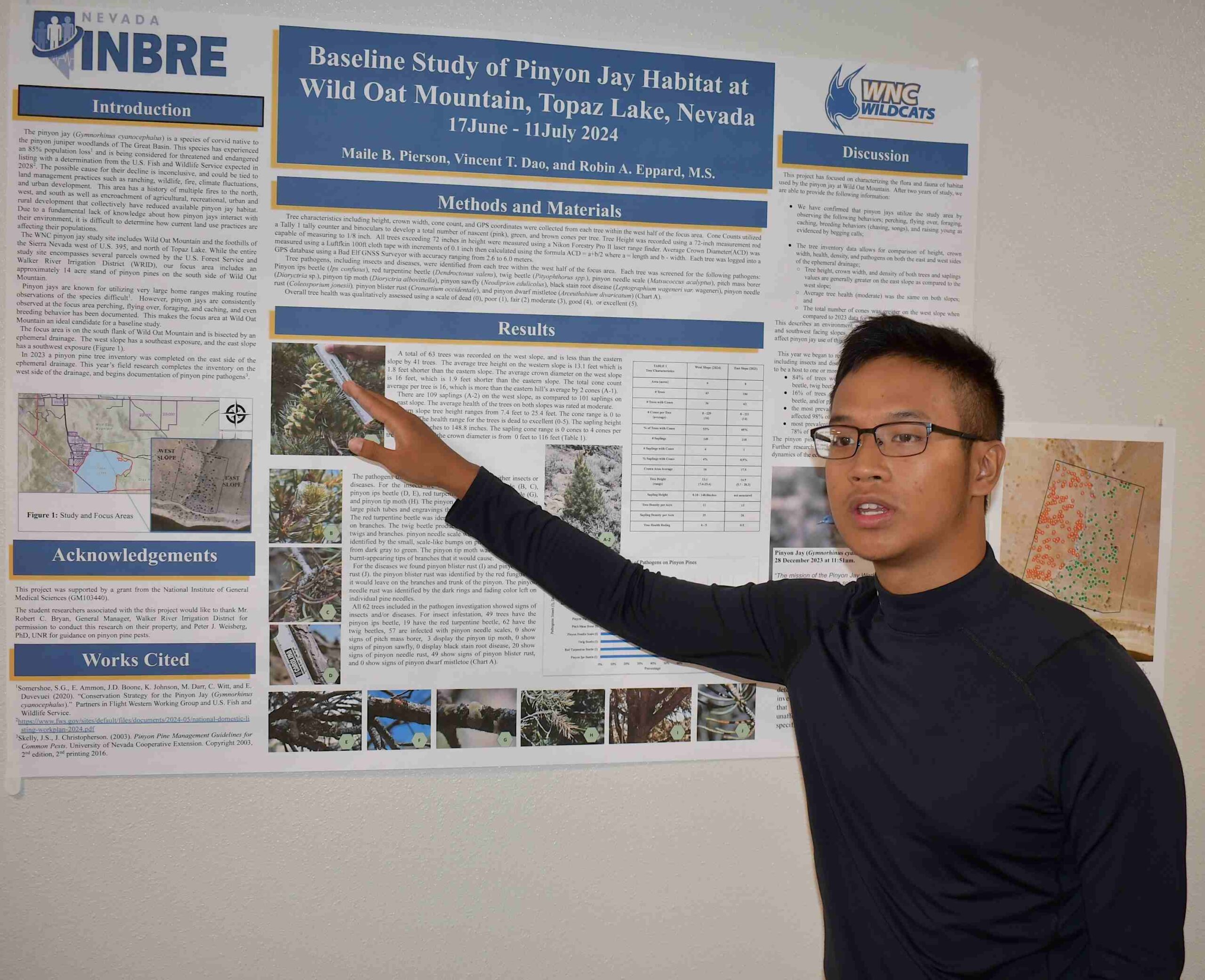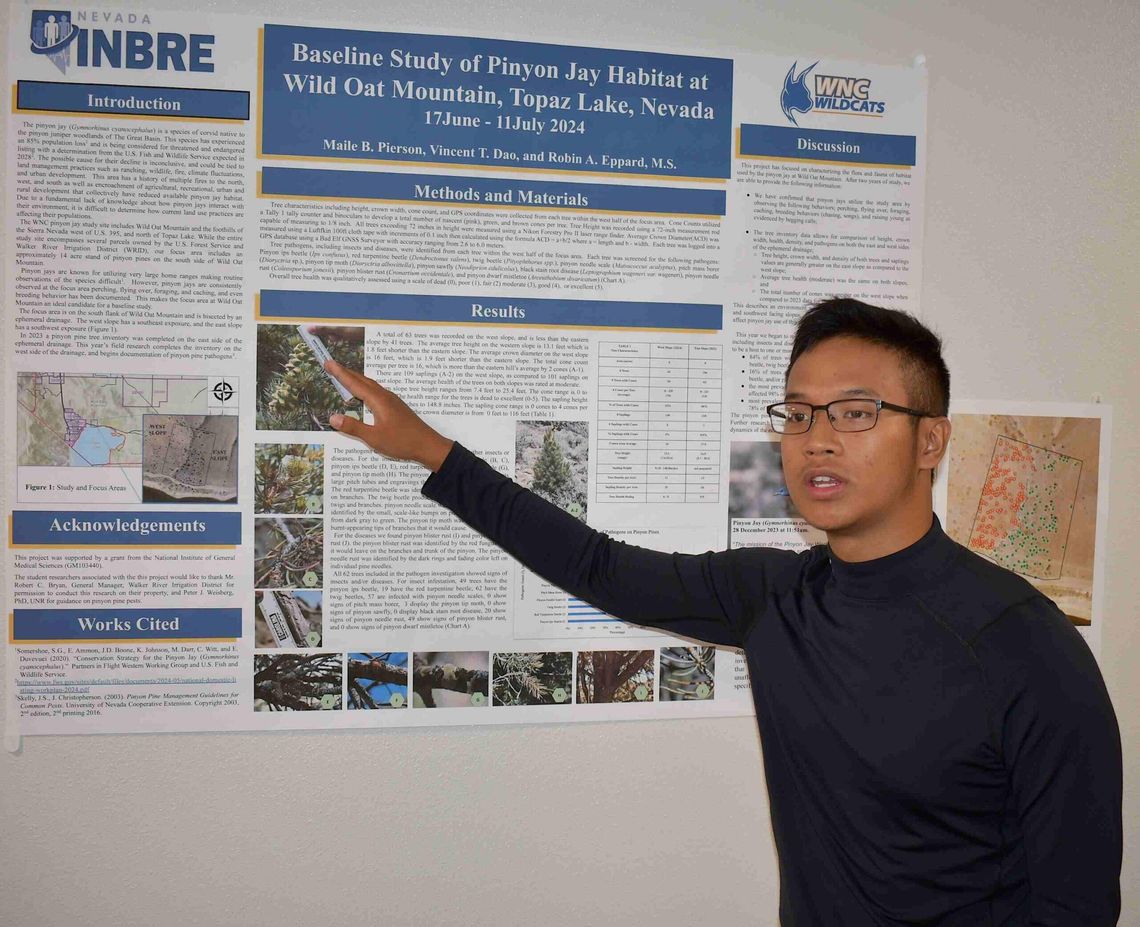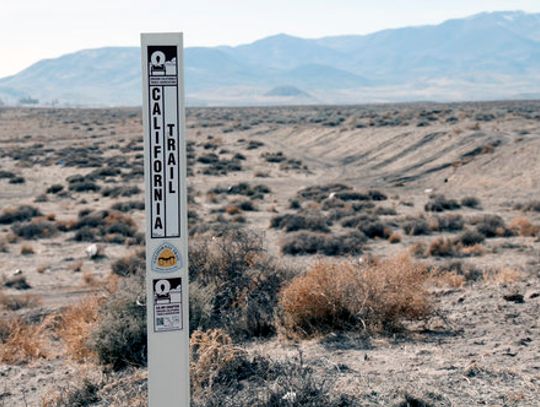
Courtesy of Steve Yingling, Western Nevada College
Western Nevada College students are gravitating toward summer research projects in record numbers.
For the second year in succession a record number of students participated in the IDeA Network of Biomedical Research Excellence (INBRE) program.
They studied microorganisms, plants, a potentially endangered species and gene products found in cancer cells. Best of all, their research work took them outdoors — to Wild Oat Mountain and the body of water it overlooks: Topaz Lake.
“The INBRE summer research and INBRE pilot grant allow undergraduate students an authentic research experience,” said WNC Professor of Biology and Chemistry Dr. Elizabeth Tattersall, one of six faculty members who guided 19 students through various research projects. “This year, there were more student applications than ever before, and not all students who applied were admitted to one of the projects.”
Students summarized their research work on posters and presented them to faculty, staff and family and friends Monday, July 15, in the Aspen Building. Reaching their conclusions and finalizing their results required the students to work in the field — something they really enjoyed.
“Being out in the field and using the information that we learned in the classroom in real-life situations. All of the biology classes that I have taken came in handy out in the field and trying to document all of this new information,” said Maile Pierson, who participated in two of the six research projects this summer.
Research presentations included Antibiotic Resistant Microbes in Wild Oat Mountain Soil and Topaz Lake; The Induction of Novel mRNA Cyclooxygenase-1 Intron-1 Retention (COX-1b) Splice Variants in PMA-Differentiated THP-1 Cells; Micrococcal and Bacillary Microbes Abundant in Topaz Lake Water; Bacilli Common in Wild Oat Mountain Soil; a Baseline Study of Pinyon Jay Habitat at Wild Oat Mountain, Topaz Lake; and a Plant Survey of Wild Oat Mountain.
WNC student researchers were Trent Whitney, Alexander Contreras, Maxwell Thornley, William Pickard, Nathaniel Arnold, James. Cosman, Vivian Felix, Keaolohinani Kukonu, Joshua Luis, Owen Palmer, Brisa Ugalde, Wesley Bass, Shannon Gillham, Caroline Schofield, Esmay Harger, Ashley Ambriz, Nandu Praveen, Maile Pierson and Vincent Dao. In addition to Dr. Tattersall, they were led by biology and chemistry instructors including Dr. Smriti Bhattarai, Rachelle Bassen, Dr. Gary Evett, Dr. Christian Copley-Salem and Robin Eppard.
"Providing our students with research opportunities complements their education and brings concepts and methods into focus," said WNC President Dr. J. Kyle Dalpe. "We are really fortunate to have so many faculty members who participate in these projects to make these educational experiences for students truly impactful."
Dr. Tattersall said that there are many advantages for students participating in research work.
“Students who engage in undergraduate research generally show more engagement in their education, and are more likely to attend graduate school. They are paid for their research efforts,” she said.
For more information about research opportunities at WNC, contact Dr. Tattersall at [email protected].
“For future biology-focused students or just any student who wants to get any type of background with field work, I highly recommend this program,” said Dao, who graduated from WNC this spring and will continue his biology education at the University of Nevada, Reno, this fall.









Comment
Comments